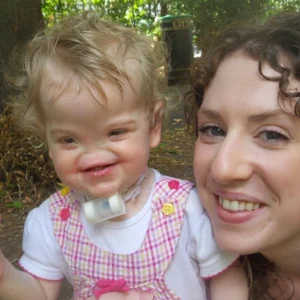In recent years, there has been a significant shift in the conversation surrounding mental health. What was once shrouded in stigma and silence is now being openly discussed and prioritized in societies worldwide. This shift reflects a growing awareness of the prevalence and impact of mental health issues on individuals, families, and communities. In this blog, we will explore the importance of mental health awareness and destigmatization efforts, highlighting the progress made and the work that still lies ahead.

Understanding Mental Health:
Mental health encompasses our emotional, psychological, and social well-being. It affects how we think, feel, and act and influences how we handle stress, relate to others, and make choices. Mental health is an integral part of overall health, yet it is often overlooked or dismissed due to lingering societal stigma and misconceptions.
The Stigma Surrounding Mental Illness:
Stigma refers to negative attitudes and beliefs that lead to discrimination and marginalization. When it comes to mental illness, stigma can manifest in various ways, including fear, prejudice, and avoidance. People experiencing mental health challenges may face judgment, rejection, and even discrimination in their personal and professional lives. This stigma can deter individuals from seeking help, leading to untreated conditions and worsening symptoms.
The Importance of Awareness and Education:
Mental health awareness initiatives play a crucial role in challenging stigma and fostering understanding. By providing accurate information and dispelling myths, these efforts empower individuals to recognize the signs of mental illness, seek support, and offer compassion to those in need. Education also helps break down barriers to treatment and encourages open dialogue about mental health in homes, schools, and workplaces.
Destigmatization Efforts in Action:
Across the globe, organizations, advocacy groups, and individuals are working tirelessly to combat mental health stigma. These efforts take many forms, including:
- Public Awareness Campaigns: Through media campaigns, social media, and community events, organizations raise awareness about mental health issues, promote empathy, and encourage help-seeking behavior.
- Mental Health First Aid Training: Programs like Mental Health First Aid provide individuals with the skills and knowledge to recognize the signs of mental illness, offer support, and connect people to resources.
- Peer Support Networks: Peer support groups offer a safe space for individuals with lived experience of mental illness to share their stories, receive validation, and access practical advice and support from others who understand.
- Workplace Mental Health Initiatives: Employers are increasingly recognizing the importance of supporting employee mental health. Workplace initiatives may include mental health education, access to counseling services, and creating a supportive work environment that prioritizes well-being.
- Policy Advocacy: Advocacy efforts aim to influence policies and legislation related to mental health, including funding for services, anti-discrimination laws, and mental health parity.
The Impact of Destigmatization:
Destigmatization efforts have yielded tangible results in improving mental health outcomes and quality of life for individuals and communities. When stigma is reduced, people are more likely to seek help when needed, leading to earlier intervention and better treatment outcomes. Additionally, fostering an environment of acceptance and support promotes resilience and enhances community well-being.
Also Read
Challenges and the Road Ahead:
Despite progress, challenges remain in the journey toward destigmatizing mental illness. Deep-rooted societal attitudes, cultural beliefs, and systemic barriers continue to perpetuate stigma and discrimination. Additionally, marginalized communities, including people of color, LGBTQ+ individuals, and those living in poverty, may face intersecting forms of stigma that compound the challenges they face in accessing mental health care.
Moving forward, it is essential to continue amplifying diverse voices, advocating for equitable access to mental health services, and challenging stigma at every level of society. By fostering empathy, understanding, and support, we can create a world where mental health is recognized, valued, and prioritized for all.

Conclusion:
Mental health awareness and destigmatization efforts have made significant strides in recent years, but there is still much work to be done. By promoting education, empathy, and advocacy, we can break down barriers, challenge stigma, and create a more inclusive and supportive society for individuals living with mental illness. Together, let us continue to raise our voices, break the silence, and stand in solidarity with all those affected by mental health challenges.





